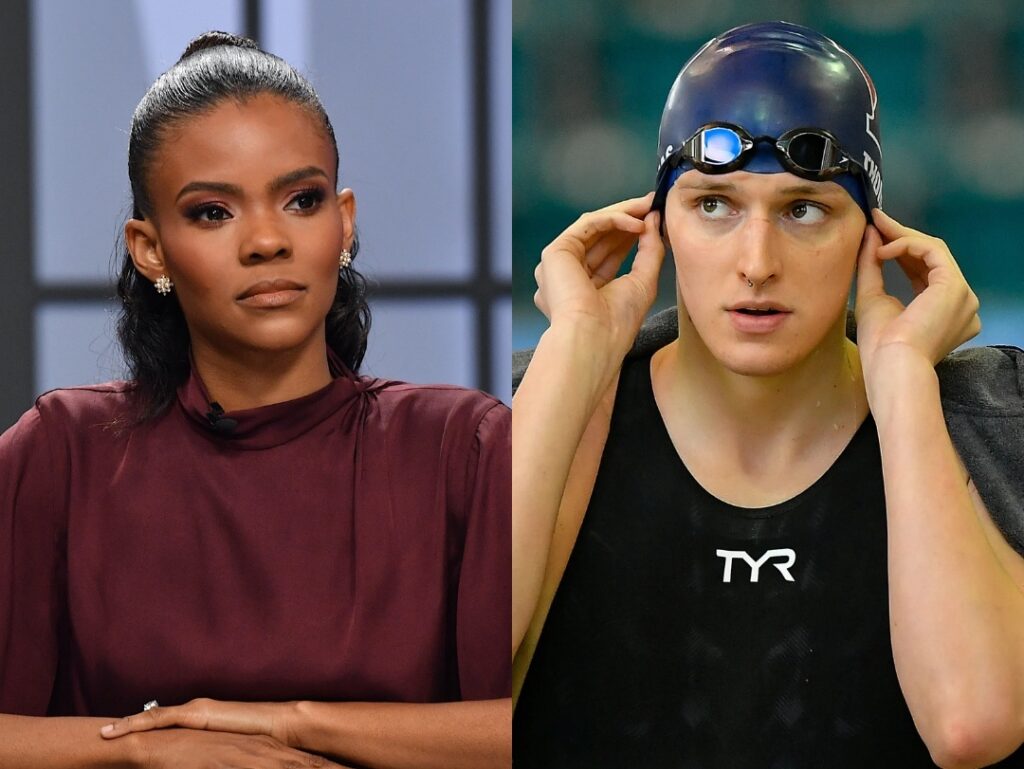
Conservative commentator Candace Owens has once again sparked controversy by calling for transgender swimmer Lia Thomas to be banned from women’s sports. Owens, known for her unapologetically bold views, took to social media and public platforms to express her staunch disapproval of Thomas’s participation in women’s competitions, a topic that has already polarized public opinion.
Owens stated in a recent interview, “Women’s sports should remain a safe haven for biological women. Allowing individuals who were born male to compete in these categories not only undermines the spirit of fair play but also erodes the achievements of women who have dedicated their lives to excelling in their fields.” Her remarks quickly went viral, fueling debates across the globe.
Lia Thomas, a transgender athlete who gained national attention for her performances in collegiate swimming, has become a symbol of the ongoing cultural clash between inclusivity and traditional definitions of gender. While Thomas has received significant support from LGBTQ+ activists and organizations advocating for the rights of transgender athletes, critics like Owens argue that her participation in women’s sports creates an unfair advantage due to biological differences.
The heart of Owens’ argument centers on fairness. She claims that the inclusion of transgender women in women’s sports disregards the physical distinctions between genders, which are acknowledged even by most sports governing bodies. According to Owens, ignoring these differences creates an uneven playing field, putting cisgender female athletes at a disadvantage.
Supporters of Owens’ stance echo similar sentiments, emphasizing the need for clear regulations to protect the integrity of women’s sports. Many argue that transgender athletes should compete in separate categories or be subject to stricter guidelines that ensure equitable competition.
However, critics have accused Owens of fanning the flames of division and using transgender athletes as a political talking point. LGBTQ+ advocates have highlighted the psychological toll that such rhetoric can take on transgender individuals, many of whom already face significant barriers in both sports and society. Lia Thomas herself has spoken openly about her struggles with mental health and the backlash she has endured as a trailblazer for transgender athletes.
The issue of transgender participation in sports is far from new, but Thomas’s case has reignited global conversations. In recent years, organizations such as the International Olympic Committee (IOC) and NCAA have introduced inclusive policies for transgender athletes. These policies often focus on hormonal thresholds rather than biological sex, sparking further debate about their efficacy and fairness.
Owens, however, is unyielding in her perspective. She insists that accommodating transgender athletes in women’s sports comes at the expense of cisgender women, a group she claims is being “erased” in the name of political correctness. “We fought for decades to give women their rightful place in sports,” she said. “This isn’t progress; this is regression.“
The controversy also highlights broader societal divides about identity politics and how institutions navigate the complex interplay between inclusivity and tradition. While some see Owens’ call as a necessary step to preserve fairness, others view it as a regressive move that alienates and marginalizes transgender individuals.
For now, the debate rages on, with no clear resolution in sight. As the world watches, one thing is certain: the discussion about transgender athletes, fairness, and inclusivity will continue to shape the future of sports and society as a whole. Owens’ demand for a ban may have been a spark, but the fire it ignited is far from extinguished.











